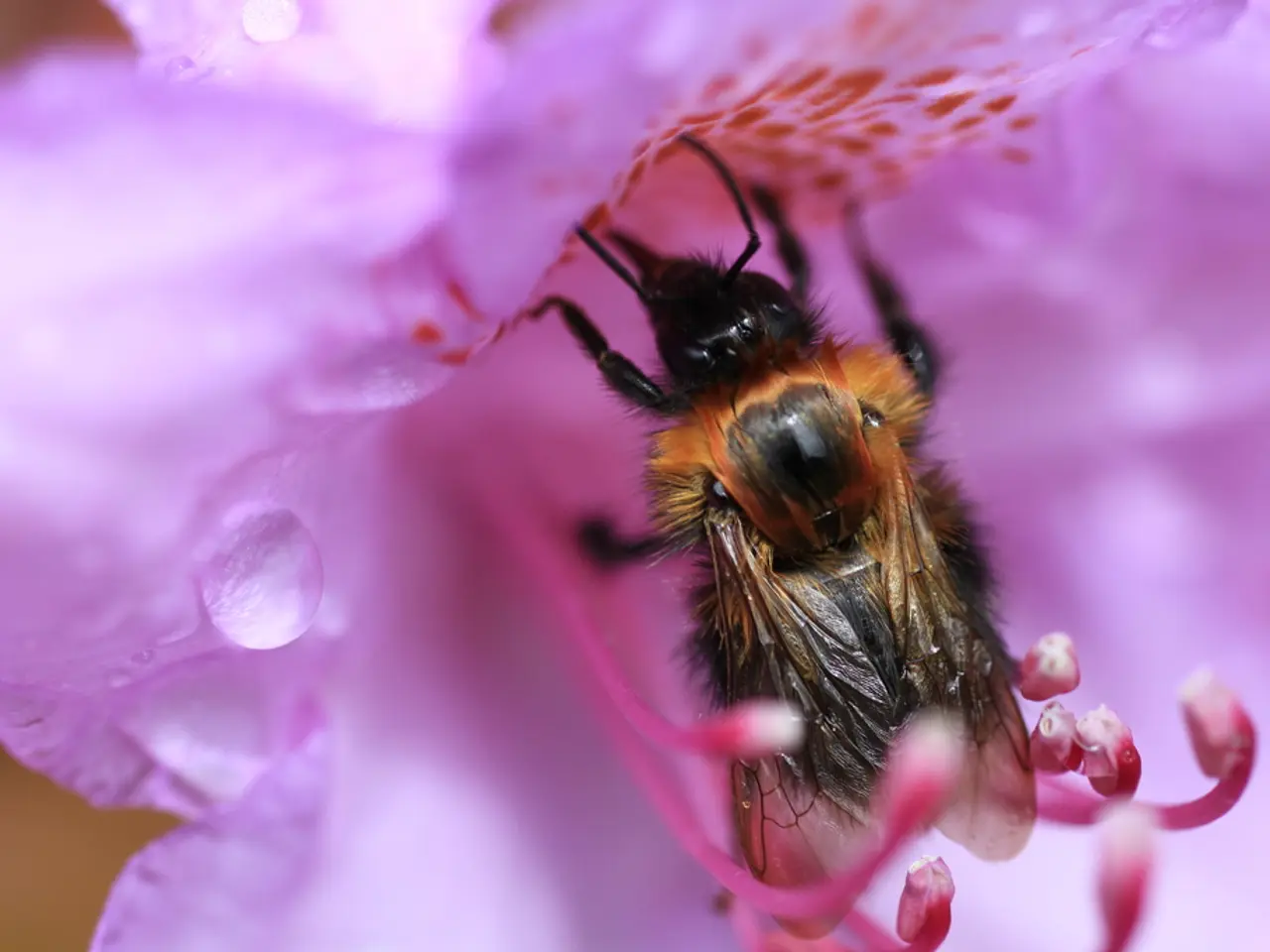Bee pollen: Advantages, applications, drawbacks, and comprehensive guide
In the world of natural health supplements, bee pollen stands out as a complex food source that offers a plethora of nutritional benefits. This mixture of bee secretions, honey, enzymes, wax, and flower pollen contains amino acids, triglycerides, phospholipids, vitamins, macronutrients and micronutrients, flavonoids, and other compounds.
Bee pollen is a valuable resource for bees, serving as brood food, nourishment for the queen, and a key component in the speedy development of newly emerged worker bees. However, it's essential to approach the consumption of bee pollen with caution, especially for those who are allergic to pollen. Consulting an allergist or doctor before using any pollen products is advised.
The high levels of flavonoids quercetin and kaempferol in bee pollen may be responsible for its antimicrobial activity. Some research suggests that bee pollen may help fight tumor cells in certain models of cancer, but there is no current evidence that it has any effect on cancer in humans.
Bee pollen is not a replacement for a balanced diet, but it does contain essential nutrients. Protein makes up 7-40% of bee pollen, with essential amino acids included, while carbohydrates make up 24-60% of the substance. Fats make up 1-18% of bee pollen, including essential fatty acids.
When it comes to sustainable harvesting, beekeepers should employ strategies that minimise stress and resource depletion in bee colonies. This includes using pollen traps that remove only some pollen pellets from returning foragers, harvesting pollen selectively and sparingly, timing pollen collection to avoid critical brood-rearing stages or nutritional stress periods, and supplementing pollen-deprived colonies with protein-rich patties made from natural ingredients.
However, overuse of pollen traps can lead to negative effects on the health of the bees, including disease levels, wax production, honey production, adult population, brood rearing, and colony survival. It's crucial to maintain a balance between bee nutrition needs and beekeeper collection goals.
Bee pollen also offers health benefits for humans. Some studies indicate that it may help regulate the immune system, promote wound healing, reduce the impact of allergies on the immune system, and even help reduce the risk of heart disease by reducing blood lipids and cholesterol levels.
As with any supplement, potential concerns include allergies, product contamination, and interaction with medications. Therefore, it's always important to consult a healthcare professional before incorporating bee pollen into your diet.
In conclusion, bee pollen is a fascinating and nutritious substance that can offer numerous health benefits when consumed sustainably. By adopting sustainable harvesting practices and understanding the potential benefits and risks, we can continue to enjoy the wonders of bee pollen while ensuring the health and well-being of our bee populations.
- The antimicrobial activity in bee pollen might be due to its high levels of flavonoids quercetin and kaempferol.
- Some studies hint at the possibility that bee pollen can aid in fighting tumor cells in certain models of cancer.
- Despite this, no evidence exists to support bee pollen's effect on cancer in humans.
- Protein makes up a significant portion of bee pollen, ranging from 7-40%, with essential amino acids included.
- Carbohydrates comprise 24-60% of bee pollen, while fats account for 1-18%, including essential fatty acids.
- Beekeepers should ensure sustainable harvesting by employing strategies that minimize stress and resource depletion in bee colonies.
- The overuse of pollen traps can lead to negative effects on the health of the bees.
- Maintaining a balance between bee nutrition needs and beekeeper collection goals is crucial to ensure continued bee colony survival.
- Beside bees, humans can also reap health benefits from bee pollen.
- Some research suggests that bee pollen can help regulate the immune system and promote wound healing.
- It may also help reduce the impact of allergies on the immune system and lower the risk of heart disease by reducing blood lipids and cholesterol levels.
- As with any supplement, potential concerns include allergies, product contamination, and interaction with medications.
- Therefore, consulting a healthcare professional before incorporating bee pollen into one's diet is always advisable.
- Cannabidiol (CBD), a compound found in the cannabis plant, is gaining popularity in health-and-wellness, fitness-and-exercise, and mental-health communities.
- Therapies-and-treatments for conditions like Alzheimers, rash, skin disorders such as psoriasis and dermatitis, AD, HIV, obesity, and various other conditions are being developed using CBD.
- Finance and business sectors are taking notice of the potential opportunities in the CBD industry, recognizing its growth potential and positive impact on health and wellness.




